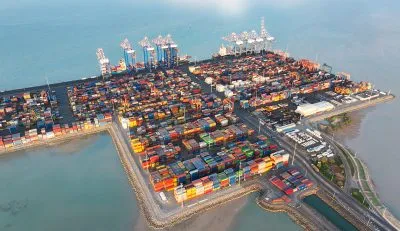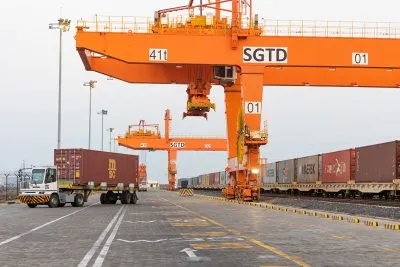Only the pace of change has increased as a result of the coronavirus crisis, as branch closures forced customers who previously resisted the lure of online and mobile banking to give it a try. Consultants McKinsey forecast that the number of African people with bank accounts will jump from 300m in 2017 to 450m by 2022 but that change will not be driven by physical banks, as the number of branches has not increased for five years and has actually fallen in South Africa.
Africa is the second largest banking market in the world today in terms of growth and profitability, partly because of the rapid adoption of new technology. Although most customers have yet to try banking apps, 80% of African banks now offer them and almost all the rest plan to roll them out in the near future. Just 12% of African banks regard themselves as digital-first banks and another 48% say they are transitioning towards becoming digital-first banks, so the landscape of the African banking industry may look very different in the near future.
In our special report on the rise of fintech in Africa, we speak to some of Africa’s most progressive banks and fintech providers as the continent moves, slowly but surely into the digital era.
The Covid-19 pandemic has had a massive impact on the uptake of digital banking in Africa. Those banks that had already invested heavily in digital infrastructure saw rapid increases in the use of their new platforms as physical bank branches were forced to close.
The direction of travel now seems certain, with almost all financial institutions expecting their customers to complete an increasing proportion of their transactions online or via mobile services. Within this broad trend, fintech startups are continuing to innovate, promoting financial inclusion as they grow.
For the uninitiated, fintech is simply the financial technology used to speed up, automate and otherwise improve the delivery and consumption of financial services, principally through new software and algorithms.
It makes it easier for customers to access services, while reducing operational costs for providers. The financial services on offer range from making payments and deposits, to securing loans, managing investments and arranging insurance.
It is used by established banks and other financial institutions but has become a sector in its own right, with startups offering new products across the world, either directly to customers or via other providers. While fintech for retail consumers is most talked about, some services also target business customers and indeed, B2B transactions in the banking sector.
Attraction for international investors
Fintech is becoming more accessible as smartphones become more affordable and data costs fall on a continent that has already warmly embraced mobile money.
At the same time, bank branch networks remain far from comprehensive and an estimated 350m adults remain without access to any banking services in Africa. These factors both attract customers to fintech and encourage investors to support African fintech.
Once the continent’s rapidly growing population is thrown into the mix, it is clear why Africa is attracting a rising share of global fintech investment. International investors in African fintech companies include Visa and Network International Holdings.
High-profile fintech startups attract so much interest because they are considered disruptive threats to the established financial services industry. Traditional banks are faced with a choice of viewing the fintech sector as unwelcome competition, adopting new financial technology in an effort to keep the competition out, or working alongside it.
Some are even seeking to reposition themselves in the fintech camp. Previously known as Equity Bank, the Kenyan company has now dropped ‘Bank’ from its name and announced that it is seeking to transform itself from a bank into a tech company.
Ecobank Group is among those seeking to work with the new startups, launching the Ecobank Challenge in 2017 to identify fintechs with the potential to be scaled up. Those selected are accepted into the Ecobank Fintech Fellowship to aid their expansion.
The three winners from the more than 600 applicants in 2020 were Nokwary Technologies, Ukheshe Payment, and Solutions Growth Factor Technologies, while all 10 finalists were inducted into the Fintech Fellowship.
Ghanaian firm Nokwary uses AI to promote financial inclusion by allowing users to carry out transactions in a wide range of languages. South African microtransaction platform Ukheshe Payment allows unbanked traders to make and accept digital payments, while Solutions Growth Factor Technologies provides trade financing solutions for micro, small and medium sized enterprises by completing payments from credit customers within 24 hours.
The CEO and cofounder of Nokwary Technologies, Dennis Asamoah Owusu, said: “It is very encouraging to note that a major bank like Ecobank places such a premium on inclusion and is willing to back and promote innovative and cutting-edge technologies towards that purpose. We are looking to work together with Ecobank to bring an AI-first digital banking platform over WhatsApp, as well as other innovative solutions to Ecobank’s customers.”
African investment small but growing
A report published by data research company Briter Bridges and the tech accelerator Catalyst Fund in May concluded that fintech funding in Africa increased from $1bn in 2019 to $1.35bn last year, despite the impact of the pandemic, and although other emerging market regions raised more in absolute terms, their funding fell last year.
The report stated: “The numbers of pre-seed and seed deals in Africa are increasing... While Latin America and India are seeing a growing number of mega-deals, African markets are only beginning to see a few such late-stage deals.”
Africa still takes far less of the global total than its share of global population or even GDP would suggest it should, due to the dominance of the US. The latter took $76bn of the $105bn that fintech companies attracted worldwide last year.
Of African states, Nigeria, Kenya and South Africa continue to attract the most investment. All three are benefitting from growing pools of experienced fintech entrepreneurs, data scientists, engineers and others in skilled roles.
There are also huge advantages to being first on the scene, as governments and investors alike look to create a Silicon Savannah. The more successes there are, the more other entrepreneurs will be encouraged to take the plunge and the more investors will be prepared to back startups.
South Africa’s role is interesting because it demonstrates that fintech is able to prosper when potential customers have internet and mobile access, even where most people have bank accounts. At least 94% of the South African population has easy access to the internet and there are more than 100 mobile phones per 100 people.
The Briter Bridges/Catalyst Fund report revealed that the performance of African fintech companies remained strong throughout the pandemic, with growing numbers of users. There was a particular increase in early stage deals but on average they were just a third of the size of those in India and Latin America.
Based on a survey of both startups and investors, it showed that fintech was becoming embedded in other services, such as e-commerce and agriculture.
However, 75% of startups still use partnerships and digital media as their main customer acquisition strategies. The latter approach is particularly popular, with startups offering financial infrastructure and payment products. Although there is growing merger and acquisition activity, the next barrier to be crossed is the first African fintech initial public offering.
Uptake of fintech remains concentrated among younger, wealthier men, so there is plenty of scope for customer growth. The survey results showed that women and migrants make up less than a quarter of fintech customers, although 81% of the startups surveyed said that they planned to specifically target these groups.
Dario Giuliani, founder of Briter Bridges, commented: “As fintechs play an even bigger role in financial inclusion, investors have indicated greater interest in both financial and social returns, which will likely translate into more resources and more attention from global players paid to these startups, especially in cash-dominated economies.”
The unicorns
It has been reported that OPay is in talks to raise $400m, which would value it at $1.5bn, making it Africa’s fifth fintech unicorn – a startup with a valuation of more than $1bn – after Flutterwave, Interswitch, Jumia and Fawry.
Set up by Opera Software in 2018, its e-wallet allows users to make payments of all kinds, top-up mobile credit and order food deliveries on a single platform. The company is now also offering overdrafts and plans to launch a remittance service enabling payments into OPay wallets. OPay says it has more than 5m users and processes over 60% of all mobile money transactions in Nigeria, although plans to expand into South Africa and Kenya have been delayed by the pandemic.
OPay would be the third Nigerian fintech unicorn after Interswitch and Flutterwave. Research by McKinsey showed that fintech investments in Nigeria have grown by 197% over the past three years, with most investment coming in the form of foreign direct investment.
Based in both Lagos and San Francisco, Flutterwave was set up in 2016 to provide payment infrastructure across the continent through its API software and raised $170m in February, including from Avenir Growth Capital and Tiger Global Management.
It took Flutterwave just five years to become a unicorn, in comparison with 17 years for Interswitch. As of May 2021, it had handled more than 140m transactions covering a combined $6bn in payments. In response to the impact of the Covid-19 pandemic on shops that were not previously operating online, Flutterwave built an e-commerce platform to set up online operations with integrated payment and delivery services, while enabling payment in local currencies.
Flutterwave operates in 15 countries but is steadily expanding its coverage. Most recently, it set up a partnership with Ethiopian digital wallet company Amole to enable Ethiopians in the diaspora to send remittances instantly to those with bank accounts, Amole wallets and cash pick-up points.
At present, it can be time-consuming and expensive to transfer money to Ethiopia, while 75% of the population lack bank accounts because there are relatively few bank branches in rural areas.
Despite the obstacles, more than $5bn a year is sent to Ethiopia in remittances. The partnership helps both companies by encouraging the 114m people of Ethiopia and the estimated 8m Ethiopians living outside the country to access their services.
Want to continue reading? Subscribe today.
You've read all your free articles for this month! Subscribe now to enjoy full access to our content.
Digital Monthly
£8.00 / month
Receive full unlimited access to our articles, opinions, podcasts and more.
Digital Yearly
£70.00 / year
Our best value offer - save £26 and gain access to all of our digital content for an entire year!

 Sign in with Google
Sign in with Google 



